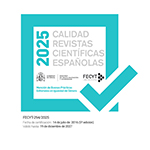“Der Mensch wird erst am Du zum Ichˮ. The Construction of Identity and Alterity in Jenny Erpenbeck’s Novel Gehen, ging, gegangen
Abstract
Mass media have been dominated by the migrant crisis for months. Also Jenny Erpenbeck’s novel Gehen, ging, gegangen treats this topic, but not just as a reaction to its growing media exposure. She rather raises the question, who were these people, before they became migrants. What takes center stage is the construction of the refugees’ identity but also of the people’s identity in Europe, where the migrants arrive. In this context, Germany becomes the contact zone between ‘the otherʼ and ‘the selfʼ, between identity and alterity. Nonetheless, ‘the otherʼ is not presented here as the dichotomic counterpart but as an essential ingredient of this ‘selfʼ, as Adorno had stated. Apart from this issue, the importance of narration for the construction of both the individual and the collective identity will be analyzed, since especially collective identities can be understood as a rhetoric process. In this context, myths are often used for the creation and stabilization of identity.Downloads
Article download
License
In order to support the global exchange of knowledge, the journal Revista de Filología Alemana is allowing unrestricted access to its content as from its publication in this electronic edition, and as such it is an open-access journal. The originals published in this journal are the property of the Complutense University of Madrid and any reproduction thereof in full or in part must cite the source. All content is distributed under a Creative Commons Attribution 4.0 use and distribution licence (CC BY 4.0). This circumstance must be expressly stated in these terms where necessary. You can view the summary and the complete legal text of the licence.










